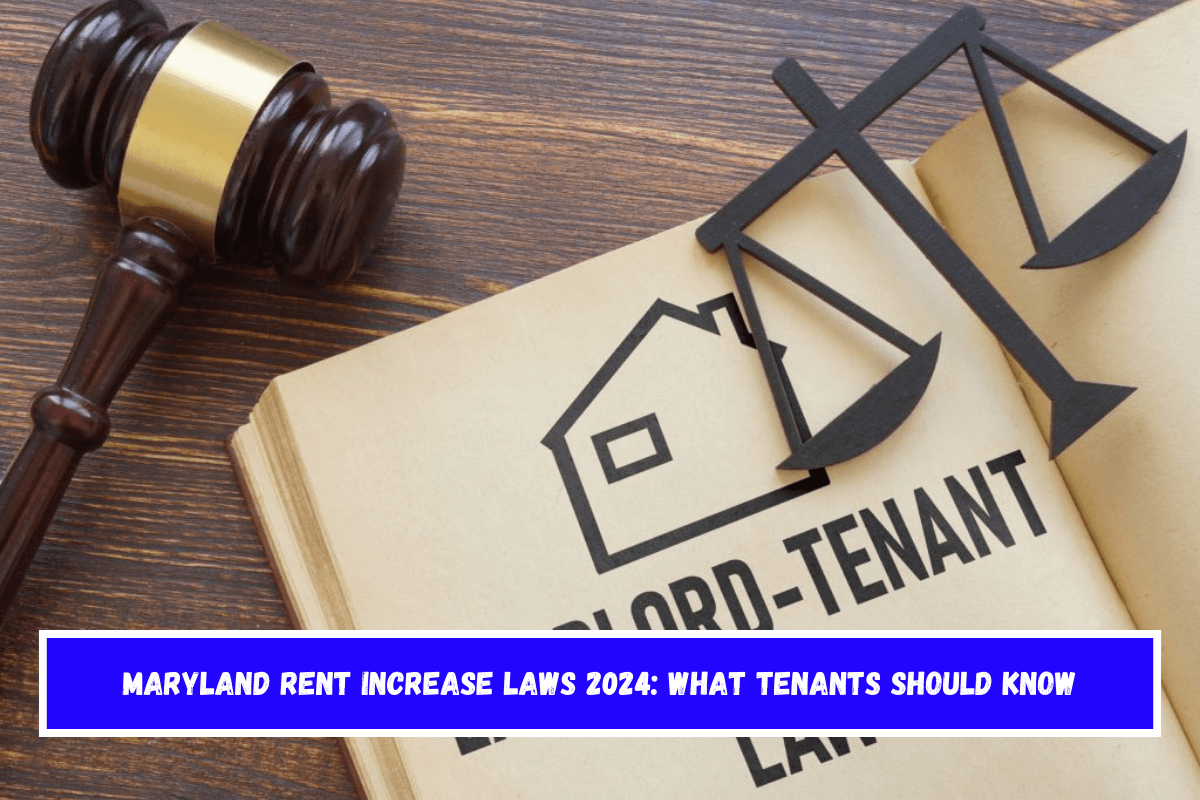With rising inflation and a competitive housing market, many Maryland tenants are expecting rent increases in 2024. Understanding your rights as a tenant is critical for navigating prospective hikes and protecting yourself from unfair treatment. This guide delves into Maryland’s rent increase legislation, including crucial information on notice periods, legal limits (if any), and tenant rights.
Maryland presently has no statewide rent control regulations in existence. This implies that landlords are typically free to raise rents as they see fit, with a few critical exceptions and legal constraints detailed below.
Rent Increase Notice Requirements
While there are no statutory limits on rent increases in Maryland, landlords must follow specified criteria for notice periods:
- Lease Renewal: For year-long leases, landlords must offer at least 90 days’ written notice before the lease expires if they intend to raise the rent. This allows tenants plenty of time to explore their options and make informed selections.
- Month-to-Month Tenancies: Landlords must give renters with periodic month-to-month contracts at least one month’s notice of any rent increases.
Recent Law Changes
A recent Maryland law requires that rent increase letters be sent first-class mail with a certificate of mailing. If a tenant prefers, the landlord can send notices electronically (by SMS, email, or the tenant site), but proof of delivery must be kept.
Local Rent Control Ordinances
Some local jurisdictions in Maryland may have their own rent control or rent stabilization ordinances. For example:
- Montgomery County: Montgomery County offers a rent stabilization program that caps annual rent increases based on the Consumer Price Index (CPI) plus some additional allowances.
- Takoma Park: Takoma Park has stricter rent control regulations.
Tenants should investigate the specific regulations in their city or county, as local rules may provide extra protections or tougher notice requirements.
Limits on Rent Increases
Even though there is no statewide limit on rent increases, note the following:
- The Increase Must Be Reasonable: While not officially stated, Maryland courts may assess whether the rent increase is consistent with market rates and justifiable based on factors such as property upgrades or increased operational costs.
- Prohibited Reasons for Increases: It is prohibited to raise rent in retribution against a tenant for exercising their rights (such as reporting defects) or for discriminatory reasons.
Discrimination and Retaliatory Rent Increases
Both federal and certain local Maryland laws protect tenants from discrimination and retaliation:
- Federal Fair Housing Act: This law forbids discrimination on the basis of race, religion, national origin, gender, familial position, or handicap.
- Local Laws: Several Maryland counties and cities have expanded anti-discrimination laws to include factors like source of income or sexual orientation.
If you believe that a rent increase is unfairly targeting you because of any of these protected features, or that it is in response to tenant complaints or rights being exercised, you should obtain legal counsel immediately.
What to Do When Facing a Large Rent Increase
Here are some steps to consider when facing a significant rent increase:
- Review Your Lease Agreement: Understand the lease terms regarding rent increases, renewal, and termination.
- Research the Market: Compare your rent with similar properties to get an idea of fair market rates.
- Negotiate with Your Landlord: If you believe the increase is unreasonable, try to negotiate. Be prepared to present data supporting your position.
- Consider Your Options: If the increase is too much, explore alternative housing that better fits your budget.
- Seek Legal Advice: If you suspect discrimination or feel the increase is unjustified, consult a tenant rights attorney or legal aid organization.
Resources for Maryland Tenants
- Maryland Legal Aid: Provides legal aid to low-income renters experiencing rent increases, evictions, and other housing difficulties (https://www.mdlab.org/).
- Local Tenant Advocacy Groups: Many towns and counties have tenant unions and organizations that help and advise renters. Search the internet for groups in your region.
Additional Considerations
- Rent Gouging: Maryland law forbids rent gouging during times of catastrophe or tragedy. Contact the Maryland Attorney General’s Office if you are facing an extraordinarily steep and exorbitant rent increase in such cases.
- Security Deposits: Remember that landlords cannot deduct your security deposit for normal wear and tear on the property. When you leave, your landlord must repay your security deposit, plus any applicable interest, within a set time frame, or offer a documented justification for any deductions.
- Maintenance and Repairs: Landlords are required to provide habitable living conditions. Tenants have the right to request necessary repairs, and there are legal remedies for landlord carelessness.
Important Reminders
- Document Everything: Keep copies of your lease agreement, rent increase notices, correspondence with your landlord, and any documentation of housing difficulties.
- Know Your Local Laws: Get to know the specific rules about renting and the laws that protect tenants in your area.
- Don’t Be Afraid to Ask Questions: If you have questions about your rights or are in an unjust position, contact a tenant advocacy group or legal aid organization in your region.
Staying Informed and Proactive
The rental landscape in Maryland is subject to change, and legislation may be amended. Tenants are encouraged to be informed about pending legislation and local policy changes. Understanding your rights, communicating clearly with your landlord, and taking aggressive steps when appropriate will help you manage rent hikes and advocate for your right to affordable and stable housing in Maryland.
Conclusion
Rent increases can be frustrating and difficult for tenants in Maryland. Navigating complex legislation and guaranteeing fair treatment needs knowledge, meticulous planning, and, in certain cases, strong action. With the information in this guide, including critical tools, Maryland renters can better protect themselves and make informed housing decisions in 2024 and beyond.
Also See:- License Renewal for Seniors in Missouri: What You Need to Know











Leave a Reply